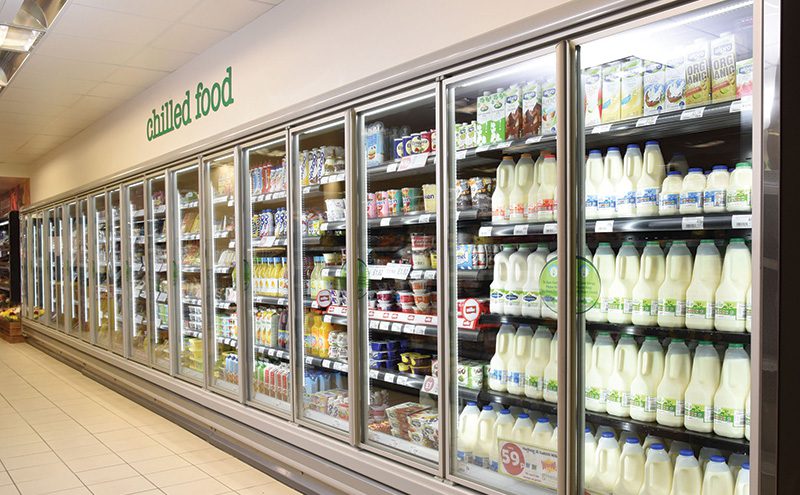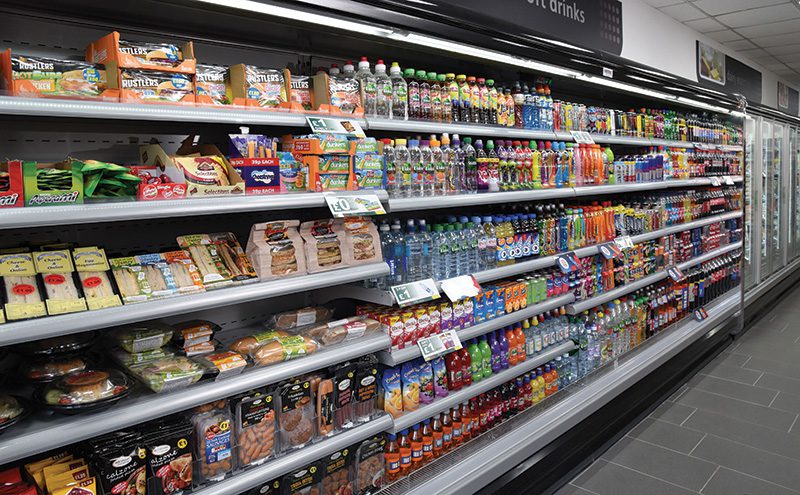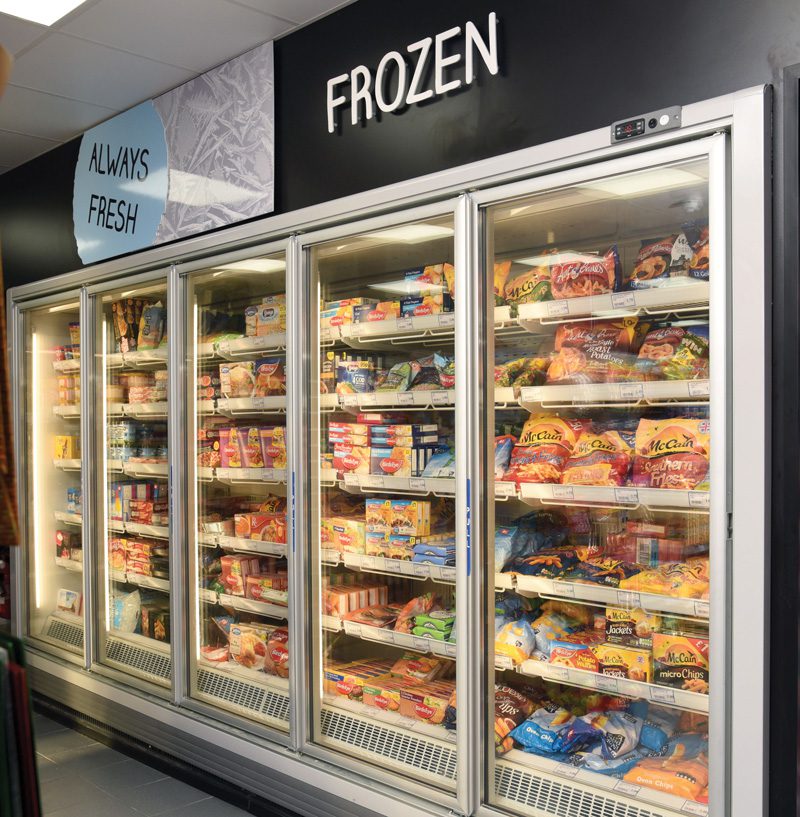
With investment by convenience retailers in refrigeration increasing Scottish Grocer spoke to two experts in the field about what systems are proving popular and why.
A chill wind has been blowing through UK’s convenience sector lately, as retailers up and down the country make investments in refrigeration.
Recent research from the Association of Convenience Stores revealed that local shops across the UK invested well over half a billion pounds in their businesses over the last year.
The latest ACS Investment Tracker found that c-store retailers paid out £596m to equipment manufacturers, shop-fitters and tradesmen.
Of that spend, 36% went on refrigeration, 26% on shelving, 21% on internal building maintenance, 16% on lighting, and 15% on store signage.
Fraser Scotcher, marketing manager at refrigeration specialist Capital Cooling, thinks demand has definitely been on the rise in Scotland, especially for fridges with doors.
“We’re still finding more people going with glass door multi-decks rather than the open front ones,” he said. “People are getting more and more conscious of energy consumption and more conscious of controlling temperature in store. Walk down the chiller aisle of a supermarket and you’ll be freezing. There’s a two-fold benefit to adding doors. You save energy and you make it a more pleasant, comfortable environment for shoppers.
“The number of enquiries we’ve had from independent retailers wanting glass doors on their chillers has definitely increased over the last 12 months.”

The frozen foods sector definitely also seems to be growing. “A lot more people are looking at freezers, even the larger, remote glass-door cases,” said Scotcher. “They’re certainly not cheap cases and the number of enquiries for them recently has gone through the roof. People are definitely seeing the benefits and the profitability of frozen.
“We’ve got display freezers that go from £700 up to about £7,000 and we’ve seen increases in all of them. A five-door remote case, fully installed could be many thousands of pounds, but even for those the number of enquiries is increasing.”
One reason behind the jump in interest may be the Convenience Store Resource Efficiency Grant – a £100,000 funding pot to help improve energy efficiency, launched late last year.
The Scottish Government fund, managed by Zero Waste Scotland, allows independent convenience store retailers to apply for a grant of up to £5,000. The organisation says the available budget for this year has already been committed, but it is happy to continue receiving applications in case further funding becomes available in the future.
Shopfitting specialist Vertex, which marks its 20th year of trading this year, has been heavily involved with the SGF and Zero Waste Scotland as part of the scheme.
“There is currently a huge backlog. A lot of people have taken it on,” said the company’s refrigeration business development manager, Craig Pringle. “It is a bit of a slow process, but it is worthwhile if you can get the application approved, which means everything you install must be ECA listed.
“There is a pot of gold there, but I think it’s similar to the solar panel boom. You’ve got to get in while you can.”
Energy saving has been a massive selling point for the latest refrigeration technology, said Pringle.
“Some of my customers are cutting down their monthly energy bills by several hundred pounds by fitting energy-efficient fridges with doors. Running costs are on the rise, but there is an opportunity here and the retailers who see that are making a big saving.”
However, he stressed that energy efficiency doesn’t begin and end with the installation of a new fridge.
“Sometimes you can lose out if you don’t do your homework,” he said. “There are a lot of cheap imitations out there in refrigeration that claim to carry the 60% saving but don’t. If I had a shop of my own I would always do my homework to check that a shopfitter’s units are ECA listed and their figures add up.
“Then there’s maintenance, which is perhaps the most important factor when it comes to energy efficiency. I can’t stress enough how important it is to get your shop checked at least twice a year to keep it running efficiently.”























